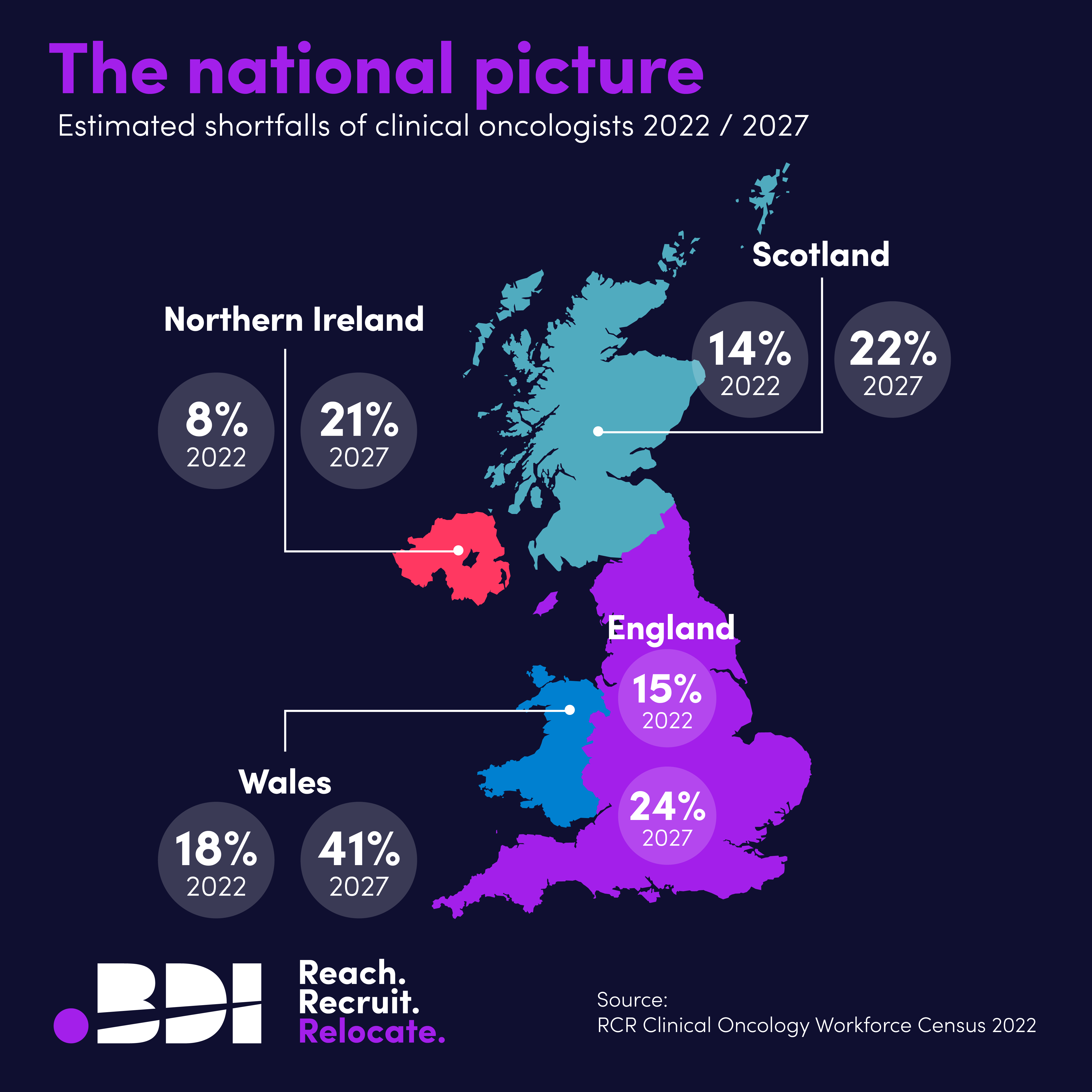
7 Surprising Workforce Statistics from Clinical Oncology
04 Aug, 20236 Minutes
1. There are 998 whole time equivalent Clinical Oncology Consultants across the UK
It's a lot and we should certainly be proud of the Clinical Oncology Workforce that we have in the NHS. They provide an amazing service and should be celebrated at every opportunity.
With that said, the picture isn't complete and we have to consider the shortfall faced and upcoming changes to the workforce.
In order to reach a full complement of staff in Clinical Oncology the NHS are increasingly turning to alternative methods of recruitment. With a highly qualified and willing international community of Clinical Oncologists looking to move to the NHS we're lucky to be able to count on support from colleagues around the world. But will it be enough to counterbalance other challenges facing the workforce.
2. 175 additional doctors are needed to deliver safe and effective standards of patient care
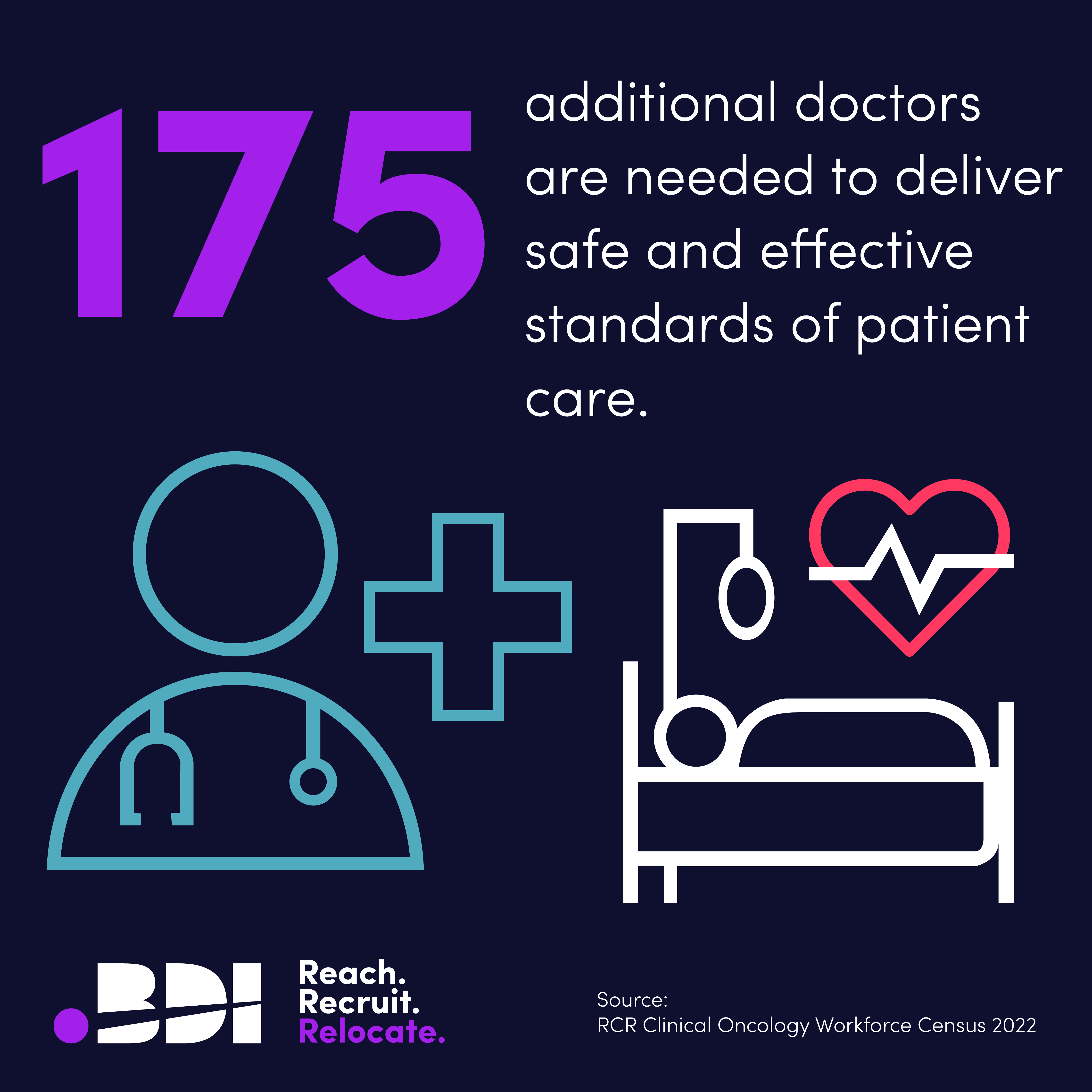
That's a huge task ahead for training the future workforce and it's hoped that the recent NHS long term workforce plan might go some way to reducing this shortfall.
We know the plan to train more doctors is a good one but what are the NHS doing to fill these gaps in the meantime?
Some of the gaps are being filled temporarily by locum doctors which is expensive and seen as a zero sum game with a gap plugged in one hospital simply leaving another vacant somewhere else.
International recruitment is proving very effective in even the most prestigious cancer centers who are counting on the international community of doctors sitting their RCR exams to come and join their teams.
3. 20% of Clinical Oncologists are forecast to retire in the next five years
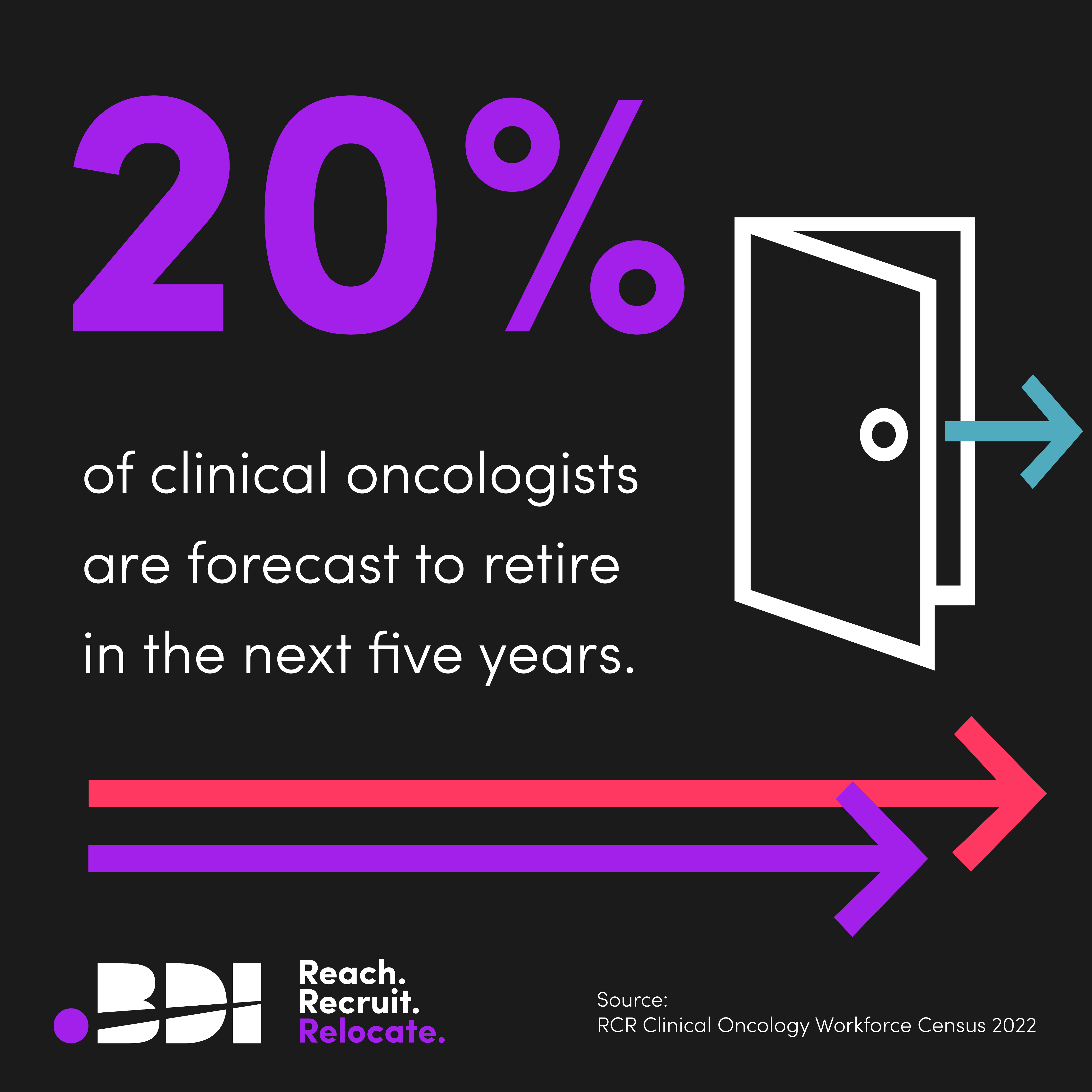 The staffing shortage is only set to be amplified in the coming years as we see a significant proportion of the workforce coming towards retirement. It's a potential problem but we know it is coming so pragmatic and sensible workforce planning is essential for Trusts that don't want to be short staffed in the future.
The staffing shortage is only set to be amplified in the coming years as we see a significant proportion of the workforce coming towards retirement. It's a potential problem but we know it is coming so pragmatic and sensible workforce planning is essential for Trusts that don't want to be short staffed in the future.
Given the time to train a junior or middle grade doctor up to consultant level, the right time to think about recruiting for all grades is now and this is what most NHS cancer centers are doing to counteract this potential reduction in workforce.
Increasingly departments are converting roles from Consultant to specialist or specialty doctor to allow for IMGs who are consultants overseas but don't feel quite ready to work fully independently.
4. 77 whole time equivalent SAS doctors are currently working in clinical oncology
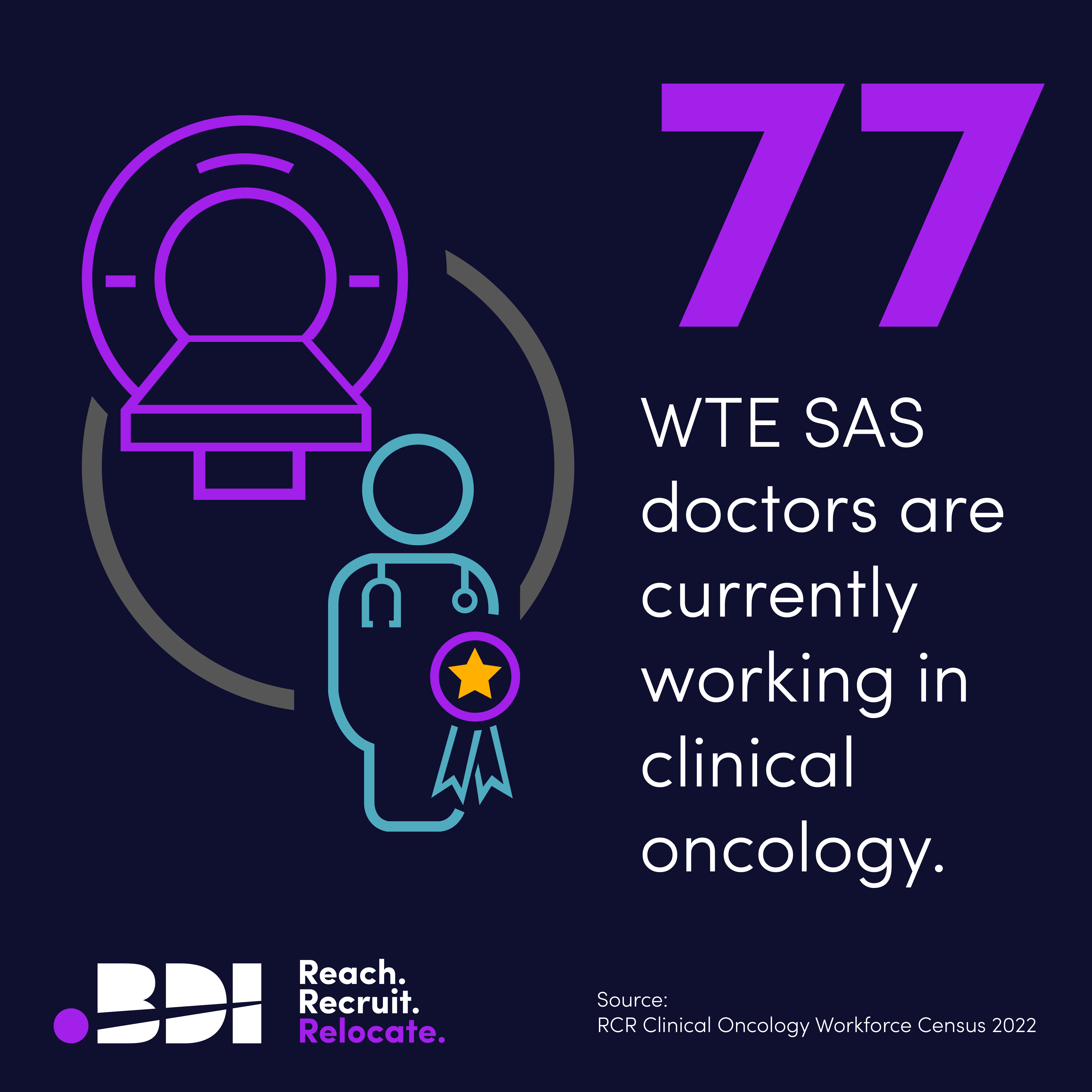
It's positive news for the number of specialist and associate specialists in clinical oncology however this only makes up 7% of the clinical oncology workforce compared with 20% more broadly across the medical workforce.
This is clearly an area for progress and one that many NHS Trusts are picking up more recently with post conversions for Consultant allowing international consultants access to a grade that can be slightly more supported.
Raising awareness of the advantages of this title for both NHS Trusts and candidates has been a great success for us and we're seeing much bigger uptake since the introduction to the medical roles on offer just a few years ago. It's good to hear more and more hospitals and doctors seeing it's benefits.
5. The estimated shortfall of clinical oncologists is expected to rise in all regions of the UK
Geographical challenges have always been problematic for the NHS with shifting social trends meaning growth in populations of major cities and a decreasing appetite for living in less heavily populated areas.
This doesn't bode well for Northern Ireland, Scotland and Wales who expect to see greater shortfalls than England.
That said, some of the major cancer centers in the United Kingdom have been the best at innovating with their recruitment offering. Notably the Velindre Cancer Centre in Wales who have put huge amounts of energy in to working on their recruitment. The benefit to them but also to the candidates who join is certainly turning the tide on the potential geographical imbalances.
6. The 15% shortfall of clinical oncologists is projected to rise to 25% by 2027
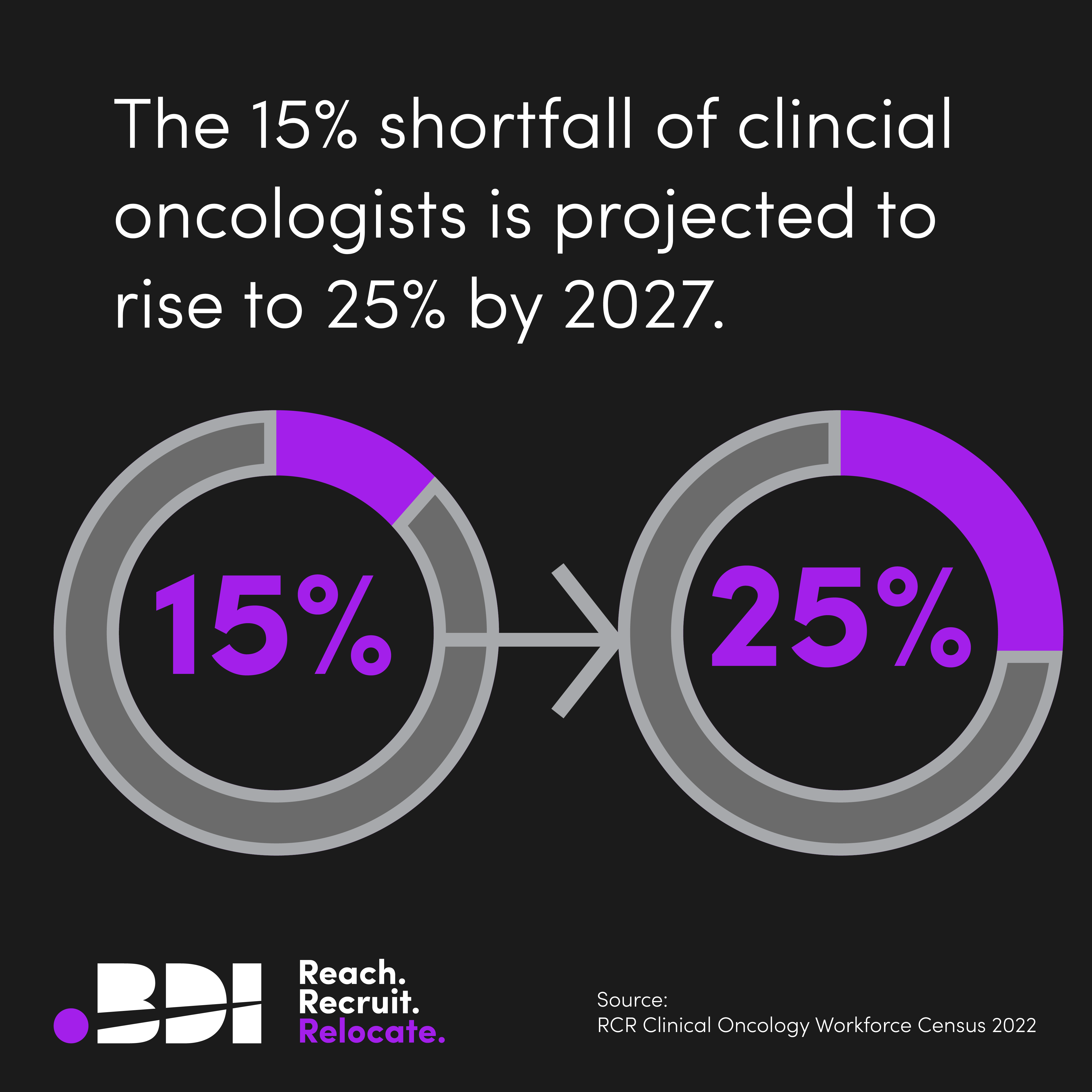 It's a tough statistic for sure and unfortunately it's unlikely we'll feel the benefits of the NHS long term workforce plan before this time.
It's a tough statistic for sure and unfortunately it's unlikely we'll feel the benefits of the NHS long term workforce plan before this time.
This is why it's increasingly important for NHS Trusts to address their recruitment concerns before the problem becomes unmanageable. Until we see more fully trained staff the only way to actively grow the talent pool remains international recruitment.
Retention of staff will also be integral to maintaining workforce numbers and the increase in offerings like flexible working will certainly help. At the time of writing recent consultant and junior doctor strike action has yet to reach a conclusion but certainly pay will be a key issue for those deciding whether to stay or leave the workforce.
7. The proportion of locum staff in Clinical Oncology has risen from 4% to 8% in 2 years.
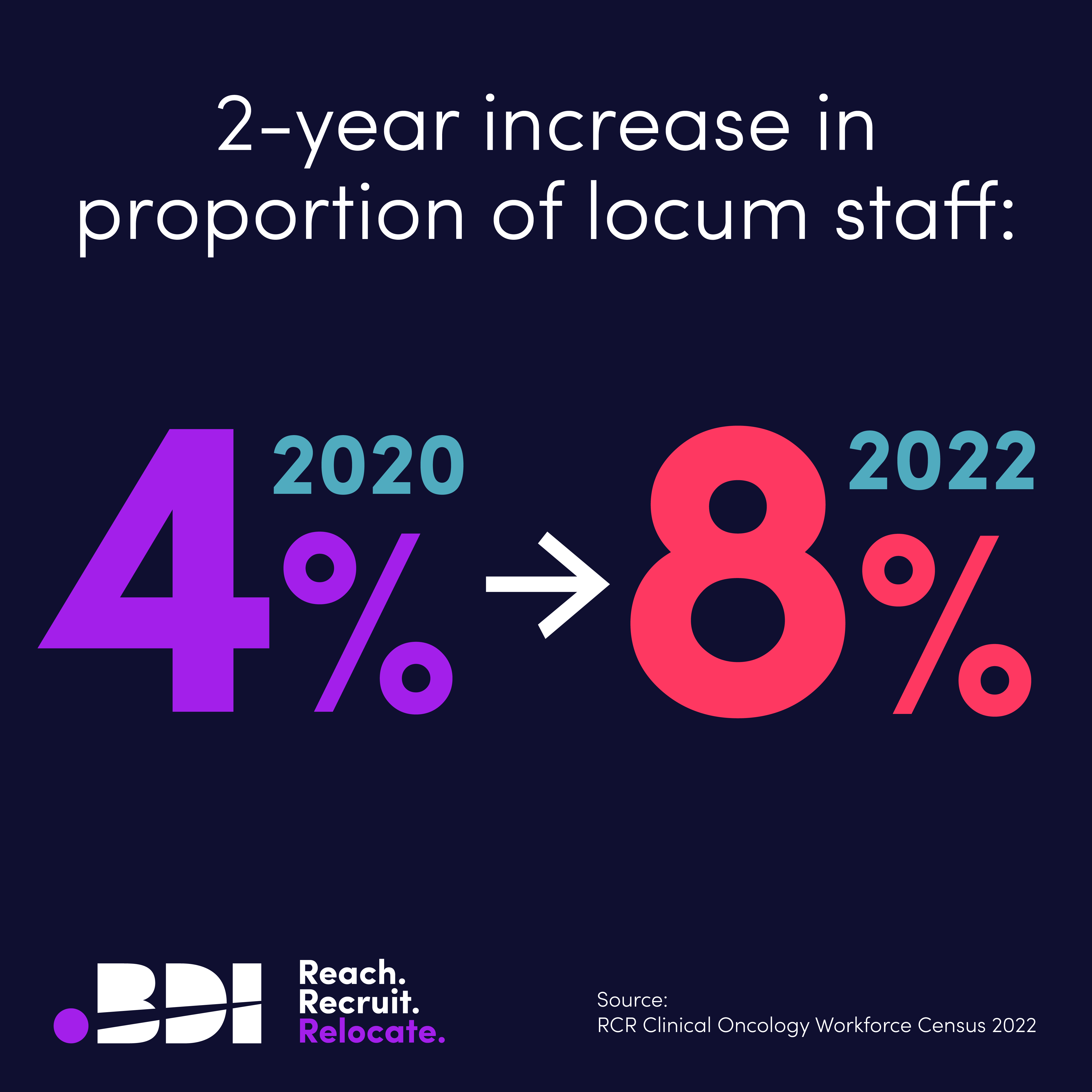 According the recent NHS workforce report Locum expenditure costs the NHS more than £3bn per year. That's a huge amount of money that could be redeployed on more sustainable recruitment action.
According the recent NHS workforce report Locum expenditure costs the NHS more than £3bn per year. That's a huge amount of money that could be redeployed on more sustainable recruitment action.
But we shouldn't point the finger at departments who are simply ensuring they meet safe staffing levels, nor at locum agencies who are responding to that demand.
Basic rules of economics tell us that if something is in short supply and high demand then the price will be high. The only realistic ways to reduce this problem are to train more doctors or hire from overseas (increasing supply) and to encourage a healthier nation thus reducing the need for cancer services (reducing demand.
About the authors
BDI Resourcing are experts in international and domestic permanent recruitment and Oncology is one of the key areas that we support the NHS with. Our emphasis is on providing digital, ethical, sustainable, affordable and fast solutions to permanent recruitment.
If you'd like to learn more about how our 'Reach. Recruit. Relocate.' campaigns have helped over 100 NHS Trusts to hire thousands of doctors from the UK and around the world in to permanent NHS roles then please get in touch.

